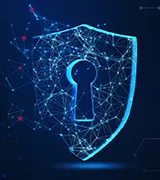Lack of trust ranked as the biggest security concern by security decision-makers globally.
Kroll conducted a survey of 1,000 senior information security decision-makers based in North and South America, APAC and EMEA. Respondents were from organizations with between $50 million and $10 billion in revenue, across multiple sectors. Our goal was to understand the current state of cyber defense, the levels of organizational trust, and how true cyber maturity links to trust in facilitating organizations to stay ahead of the curve in a constantly evolving threat landscape.
Our findings reveal a concerning inconsistency between organizations’ level of trust in their own cybersecurity status and their readiness to achieve true cyber resilience.









